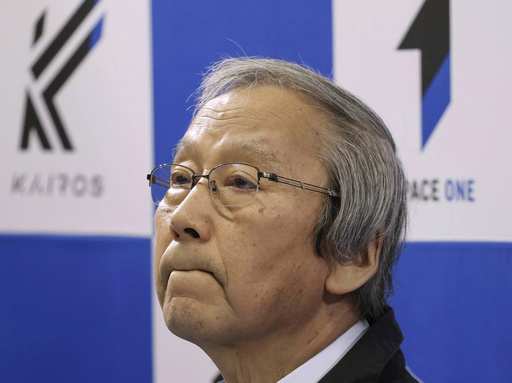
TOKYO – A Japanese space startup experienced another setback on Wednesday when its second attempt to launch a rocket carrying satellites into orbit ended prematurely just minutes after liftoff. This incident comes nine months after their first launch attempt concluded in an explosion.
The Kairos No. 2 rocket, developed by Space One, lifted off from a coastal site in the mountainous Wakayama prefecture in central Japan. However, the company made the decision to abort the launch due to concerns over the rocket’s ability to complete its mission.
“We are deeply sorry that we were unable to reach the final stages of the mission,” said Space One President Masakazu Toyoda during a conference. “Yet, we do not regard this as a failure since we are able to gather crucial data that will aid us in facing our next challenge.” He expressed hopes of quickly identifying the issues to achieve success in the future.
Mamoru Endo, an executive and space engineer at the company, indicated that irregularities in the rocket’s first-stage engine nozzle or its control system likely caused the flight instability, which resulted in the rocket spiraling out of control and eventually self-destructing approximately three minutes after launch, activated by its autonomous safety feature. Officials noted that the rocket ascended beyond 100 kilometers (about 60 miles) and managed to enter space before being destroyed.
Space One’s ambition is to be the first private Japanese company to successfully place a satellite into orbit, aiming to enhance Japan’s underdeveloped space industry through a small rocket designed for economical space transportation solutions.
This launch was delayed twice from the scheduled Saturday date due to inclement weather, marking another hurdle for the company following a failed initial attempt in March, which involved an intentional destruction of the rocket five seconds post-launch, while carrying a government satellite intended to monitor North Korea’s missile activities and other military actions.
The Kairos No. 2 rocket was tasked with carrying five small satellites, including one from the Taiwanese space agency and several created by Japanese startups. Space One reported improvements were made to address the errors from the first launch, which were attributed to a miscalculation in the rocket’s first-stage propulsion.
Japan is hopeful that Space One can lead the way for a thriving domestic space industry that competes with U.S. capabilities. Established in 2018 with support from prominent Japanese corporations like Canon Electronics, IHI, and Shimizu, along with significant financial backing, Space One aims to provide cost-effective space delivery services and conduct up to 20 launches annually, a substantial increase over the six missions currently anticipated under the government’s space program.
The nation’s aerospace initiatives are primarily spearheaded by the Japan Aerospace Exploration Agency (JAXA), along with major industry players such as Mitsubishi Heavy Industries and IHI. They are concurrently working on two key flagship rockets: the larger H3 and the smaller Epsilon, to cater to the increasing demands of the satellite launch sector.

